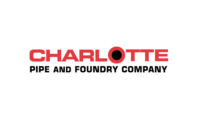Seven U.S. producers of circular welded non-alloy steel pipe (“standard pipe”) filed a petition under section 421(b) of the Trade Act of 1974 with the U.S. International Trade Commission (ITC), seeking relief from market disruption caused by imports of standard pipe from the People's Republic of China.
Companies who filed this petition are: Allied Tube & Conduit, IPSCO Tubulars, Maruichi American, Maverick Tube, Sharon Tube, Western Tube & Conduit and Wheatland Tube. They were joined in the petition by the United Steelworkers of America union. The standard pipe industry operates facilities in Arizona, Arkansas, California, Illinois, Ohio, Pennsylvania and Tennessee, and employs approximately 2,500 workers.
Peter Dooner, president of Wheatland Tube Co., explained that “our industry has been devastated by the surge of standard pipe imports from China. In spite of strong market demand, the import surge has forced us to lay off a quarter of our employees. Our mills are operating at dismally low utilization rates. We need import relief to expand production and recall workers.”
Will Boggs, vice president of fire protection and fence at Allied Tube and Conduit, noted that “imports from China of standard pipe surged from 9,000 tons in 2002 to 266,000 tons in 2004, and nearly 200,000 tons in just the first half of 2005. Allied has pipe mills located throughout the country, and we are witnessing Chinese pipe in the West, Gulf area, South, East and even in the Midwest. Their prices are less than our costs of raw materials.”
The petition includes specific data to document the dramatic increase of Chinese standard pipe imports. They increased by 256,238 tons (2600%) from 2002 to 2004. In 2005, this increase has continued with data for the first half of 2005 showing 182,871 tons, which represents an increase of 95,110 tons (108.4 %) over the volume of the same product in the first half of 2004.
In 2002, these imports from China represented only 0.4% of the U.S. market. In 2004, the portion of the Chinese imports had grown to 10.3% of the U.S. market, and to 16.4% in the first half 2005.
In comparison, the U.S. industry's production fell by nearly 175,000 tons - a 29% decrease in the second half of 2004 as compared to the first half of 2004. This trend continues in 2005, where data shows a 32.7% decline in production. The average number of workers in the industry also has declined by 18.1%, and wages fell by 17.9%. One of the industry's largest producers laid off approximately 200 workers in February 2005.
Roger Schagrin, of Schagrin Associates (Washington, D.C.) and counsel for the petitioners, stated, “It is clear that the U.S. pipe industry cannot compete with trade distorting practices of the Chinese government that include currency manipulation, export rebate programs, subsidized capacity expansion, and the absence of worker safety and environmental compliance rules.”
Bill Perrine, president of Sharon Tube, added, “It is imperative that our industry and our workers obtain Section 421 relief, and we look forward to working with members of our Congressional delegations throughout the country on this important issue.”
A hearing will be held at the ITC in mid-September, followed by the Commission's vote, which is expected by the end of the month. An affirmative decision by the ITC would advance the petition to the president and trade representative for additional consideration and final determination as to the granting of relief by the president.
The industry has asked that the Commission recommend to the President that a quota on imports of standard pipe from China be made at a level of 90,000 tons annually for a period of five years, with the quota amount increasing 5% per annum.

